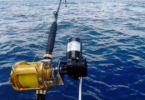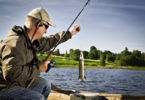The world’s oceans are teeming with life, and at the heart of this incredible biodiversity are the fish. Fish not only serve as a crucial source of nutrition for billions of people worldwide but also play a pivotal role in maintaining the delicate balance of marine ecosystems. However, with overfishing and unsustainable practices threatening our fish stocks and marine environments, it is imperative that we explore how fish resources and the marine environment can be preserved through sustainable fishing.
The Importance of Fish
Fish are more than just a source of food; they are a cornerstone of life beneath the waves. They contribute to the health of the oceans by helping control algae growth, supporting coral reefs, and serving as prey for larger marine species. Furthermore, fish provide livelihoods for millions of people, particularly in coastal communities that rely on fishing as their primary source of income.
The Threat of Overfishing
Overfishing is one of the most significant threats to global fish populations and marine ecosystems. This occurs when fish are caught at a rate faster than they can reproduce, leading to population declines and, in some cases, collapse. Many commercially important fish species, such as tuna, cod, and salmon, have experienced severe declines due to overfishing.
Sustainable Fishing Practices
Sustainable fishing practices are essential for ensuring the long-term health of fish populations and marine environments. Here are some key principles and practices that can help achieve sustainability in fishing:
- Setting Catch Limits: Establishing scientifically-based catch limits for each fish species helps prevent overfishing. These limits take into account the species’ reproduction rates and ensure that fishing does not exceed what the population can sustain.
- Protecting Breeding Grounds: Establishing marine protected areas (MPAs) in critical breeding and feeding areas allows fish populations to recover and ensures the survival of young fish. This helps maintain the overall population.
- Selective Fishing Gear: Using selective fishing gear and techniques that target specific species while minimizing bycatch (unintentionally caught non-target species) reduces the negative impact of fishing on ecosystems.
- Reducing Bycatch: Implementing regulations and technologies to reduce bycatch helps protect vulnerable species like sea turtles, dolphins, and sharks.
- Monitoring and Enforcement: Strict monitoring and enforcement of fishing regulations are crucial to ensure compliance with sustainable practices.
Promoting Sustainable Fishing
Promoting sustainable fishing practices requires a multi-pronged approach involving governments, fisheries management organizations, fishermen, and consumers. Here are some ways to encourage and promote sustainability:
- Educating Fishermen: Providing training and education to fishermen about sustainable practices and the importance of adhering to fishing regulations can make a significant difference.
- Incentives for Compliance: Governments can offer incentives and subsidies to fishermen who adopt sustainable practices, such as using eco-friendly gear or reducing bycatch.
- Consumer Awareness: Consumers can make informed choices by purchasing seafood products with eco-friendly certifications, such as the Marine Stewardship Council (MSC) label. This drives demand for sustainable seafood and encourages fisheries to adopt responsible practices.
- Supporting Research: Investing in scientific research to better understand fish populations and ecosystems helps inform sustainable management decisions.
- International Collaboration: Cooperation between nations is crucial, especially for migratory fish species that cross borders. International agreements and collaborations are essential for managing these shared resources sustainably.
Conclusion
Fish are a vital part of our oceans, ecosystems, and economies. Preserving fish resources and the marine environment through sustainable fishing practices is not only essential for food security but also for the long-term health of our planet. By adopting and promoting sustainable fishing practices, we can ensure that future generations will continue to enjoy the bounties of the sea while safeguarding the delicate balance of our marine ecosystems. It is our responsibility to protect and conserve our ocean’s treasures for the benefit of all.







Leave a Comment